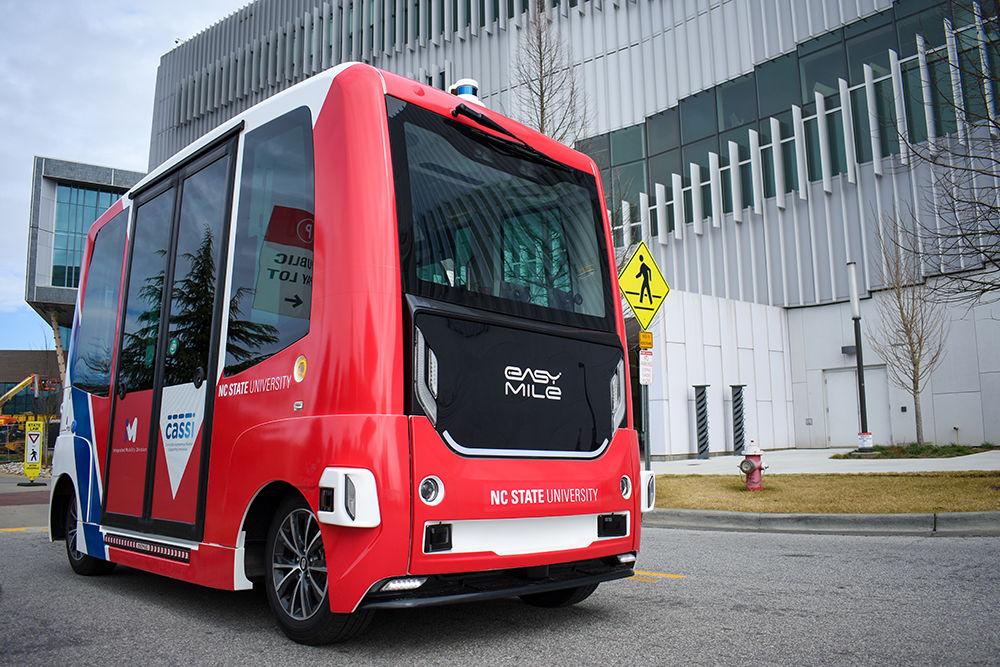The fully autonomous transit shuttle CASSI, otherwise known as Connected Autonomous Shuttle Supporting Innovation, will be running a route on Centennial Campus for the next six months as research is collected on its role in the community, within existing infrastructure and the general public perception of autonomous vehicles. Anyone is welcome to ride the shuttle, according to the NCSU Transportation website.
Mike Kennon, assistant director for planning and operations at NCSU Transportation, said the CASSI program is a partnership between vendor EasyMile, the North Carolina Department of Transportation, and NC State.
“NCDOT was looking for host areas for this research, and so they reached out to a number of places across the state,” Kennon said. “We were already doing similar research, and we thought it was the perfect place, so we offered to host it and we were chosen to be the first place. We’re probably the first of two or three that will host it over the course of a year, but we’re very excited that we got to be the first.”
Julie White, deputy secretary for multimodal transportation at NCDOT, said CASSI is mapped to a route and then deployed once the route is well learned.
“We did this partnership with NC State because whenever you do something new, you need a really strong partner to help you figure out how to address all of the challenges,” White said. “NC State is just a top-notch partner in that way. We knew from our experience with them that whatever kind of surprise hurdles came along in the process, NC State would be the right partner to help us figure out how to get over them.”
Kennon and White said CASSI mainly operates using radar technology and lacks traditional components like a steering wheel, rearview mirror or brake pedal.
“It can operate level five autonomous — fully autonomous — but if an emergency arises such that a human needs to take over, there is always a customer service ambassador on board,” White said. “They have the ability, or any of the passengers on board, to stop the vehicle, and then the customer service ambassador can take over the driving of it with a set-up remote joystick.”
NCDOT has CASSI on a 12-month lease, White said, with the first six months being at NC State and three months each at the other two currently undetermined locations across the state.
“We’re going to be opening a portal where different local governments and local entities can submit use cases for consideration,” White said. “We want to get it into different-size communities, different geographies in the state. But the vehicle does have a lot of limitations in terms of where it can operate.”
Environmental factors can make certain use cases more difficult to consider, White said, such as trees hanging over a road, which could interfere with the vehicle’s sensors. Apart from avoiding technical challenges, however, White said the NCDOT is considering a variety of options.
“Our secretary has always challenged us to make sure we understand how transportation disruptors are going to impact our agency and our infrastructure statewide,” White said. “He has encouraged us to do a lot of pilots and experiment with innovation to ensure that the infrastructure that we lay down now … will be prepared and ready for whatever the future holds.”
White said she encourages all students, faculty and visitors to ride CASSI during the six-month pilot program and complete the customer service survey.
“We brought this vehicle here so that we could start to see how it interacts with our infrastructure, our communities, how people interact with it,” White said. “We can start to think about how autonomous technology will impact the way we design our roads today so that they’re prepared for this autonomous future.”
Students can visit the NCSU Transportation website to learn more about CASSI and plan a ride.








